Students for Justice in Palestine Face Fordham in Court Once Again
The legal battle over the club’s status continues more than a year after Justice Nancy Bannon ruled in favor of SJP
November 29, 2020
Fordham Students for Justice in Palestine (SJP) faced Fordham University in the appellate division of the New York State Supreme Court on Nov. 24, continuing its five-year battle to gain official recognition as a club on campus.
Cooperating Counsel Alan Levine said “it is very difficult to tell” how long it will take the judges to make a decision, but he said if they lose, they will appeal to the New York State Court of Appeals, and they expect the same course of action from Fordham if SJP wins.
Levine, the Center for Constitutional Rights (CCR) and Palestine Legal were responsible for filing the lawsuit on behalf of the students of SJP in 2017 — two years after SJP submitted an application to form the club.
On Aug. 5, 2019, the court ruled that Fordham should recognize SJP as an official club. Fordham appealed the court order on Jan. 27, 2020, claiming that the university’s decision to ban the club was based on the premise that a chapter of SJP on campus is not in the “best interests” of Fordham’s students, according to Bob Howe, assistant vice president for communications.
“The university rejected SJP because we are advocating for Palestinians.” Katherine Kuemerle, FCLC ’21 and treasurer of SJP
Katherine Kuemerle, Fordham College at Lincoln Center (FCLC) ’21 and treasurer of SJP, said that throughout the prolonged periods between court dates, SJP has maintained frequent contact with both Palestine Legal and the CCR.
“Both have been an incredibly valuable support team since day one. They’ve assisted us in understanding the legal frameworks of the case as well as providing us with social media and marketing assistance,” Kuemerle said.
After months of inactivity on their Instagram account, SJP announced the court date in a video on Nov. 19, calling students to support them by joining a YouTube live video of the oral argument.
“The university rejected SJP because we are advocating for Palestinians,” Kuemerle said in the video. “Despite their attempts to stop us, we will continue speaking out.”
The video has over 5,000 views, and Kuemerle said that SJP received 22 photos of students standing in solidarity with the club.
“It’s been really interesting to see all these people from different backgrounds joining forces for Palestinian rights,” Kuemerle said. “Dean (Keith) Eldredge claimed that SJP would cause polarization, but it seems that since our club has been in existence, it’s really just brought a lot of people together, and allowed for some meaningful discussions to be had with regards to human rights.”
“SJP chapters regularly disrupted and interfered with students and campus operations.” Jim Ryan, Fordham’s counsel
The oral argument lasted just over 11 minutes, with only two clarifying questions from Judge Anil Singh — both of which were directed at Levine.
Fordham’s counsel, Jim Ryan, stated that Dean of Students Keith Eldredge did “extensive research” and concluded that “SJP chapters regularly disrupted and interfered with students and campus operations. The promotion of BDS was the cause of many of the safety and security issues associated with other SJP chapters.”
BDS, which stands for the Boycott, Divestment and Sanctions movement, is a Palestinian-led movement that promotes the use of those tactics — all of which are forms of nonviolent protest — against Israel. BDS aims to pressure Israel to comply with international law.
“As a student of Fordham, it’s mind-boggling in this time of austerity and budget cuts, Fordham still has the resources to pay a team of lawyers for five years.” Veer Shetty, FCLC ’21 and vice president of SJP
“This is something that never came up in the decision-making process when Eldredge vetoed the formation of SJP,” Radhika Sainath, a senior staff attorney at Palestine Legal, said. “It’s insane that they’re bringing this up at the eleventh hour and completely without basis.”
After the court hearing, the CCR and Palestine Legal hosted a debrief webinar in collaboration with SJP. The panel included Veer Shetty, FCLC ’21 and vice president of SJP, and Ahmad Awad, FCLC ’17, one of the students who filed the original lawsuit.
“As a student of Fordham, it’s mind-boggling in this time of austerity and budget cuts, Fordham still has the resources to pay a team of lawyers for five years, to not allow us to have a club, which in and of itself is just ridiculous,” Shetty said.
“Avoiding controversy is not a grounds consistent with its (Fordham’s) mission statement.” Alan Levine, cooperating counsel for SJP
Fordham’s financial situation shifted when the pandemic hit. Students were not refunded for tuition when education transitioned to online learning during the spring semester and Fordham halted contributions to retirement funds for employees in October. “There are no additional funds nor other pools of money from which to draw,” wrote University President the Rev. Joseph M. McShane, S.J., in an email to the Fordham community on Nov. 3.
Awad said he is shocked that they are still litigating the issue but remains hopeful because of the students who organize SJP and the ones standing in solidarity with them.
“All of this is about the controversy surrounding Israel and Palestine, and one understands Fordham’s reluctance to stir that hornet’s nest, but avoiding controversy is not a grounds consistent with its (Fordham’s) mission statement,” Levine said.
In his argument, Levine mentioned that denial of official club recognition has “real consequences to the petitioners,” such as the inability to solicit facilities and Fordham funds for club use.
As an official club, SJP has been able to host events, such as their collaborative poetry event with the Muslim Student Association. They are also able to congregate for club meetings on campus, utilizing Fordham facilities.
Shetty said he was confident that the ruling will be in the club’s favor because “justice is on our side.”

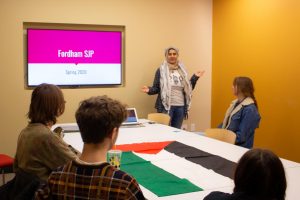
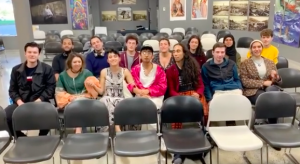
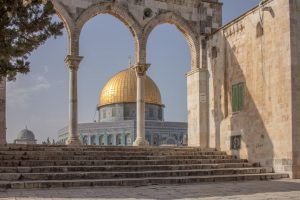
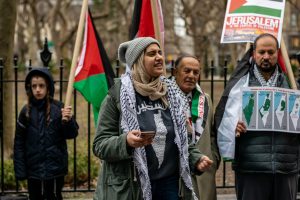
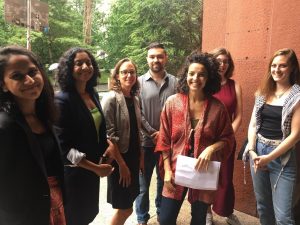
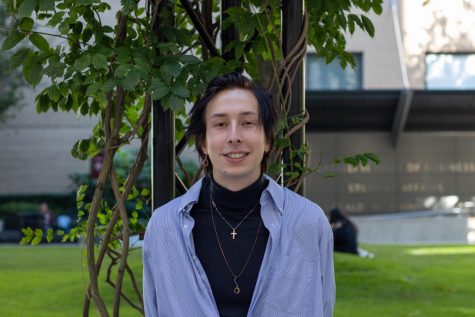
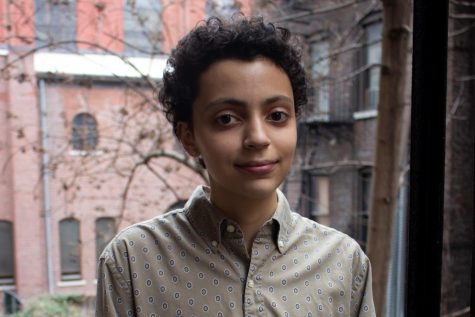









GENNARO L PASQUALE • Apr 28, 2021 at 3:58 pm
As a 1969 Fordham Law School Graduate I am outraged by the Appelate Division decision against the Students for Justice in Palestine.